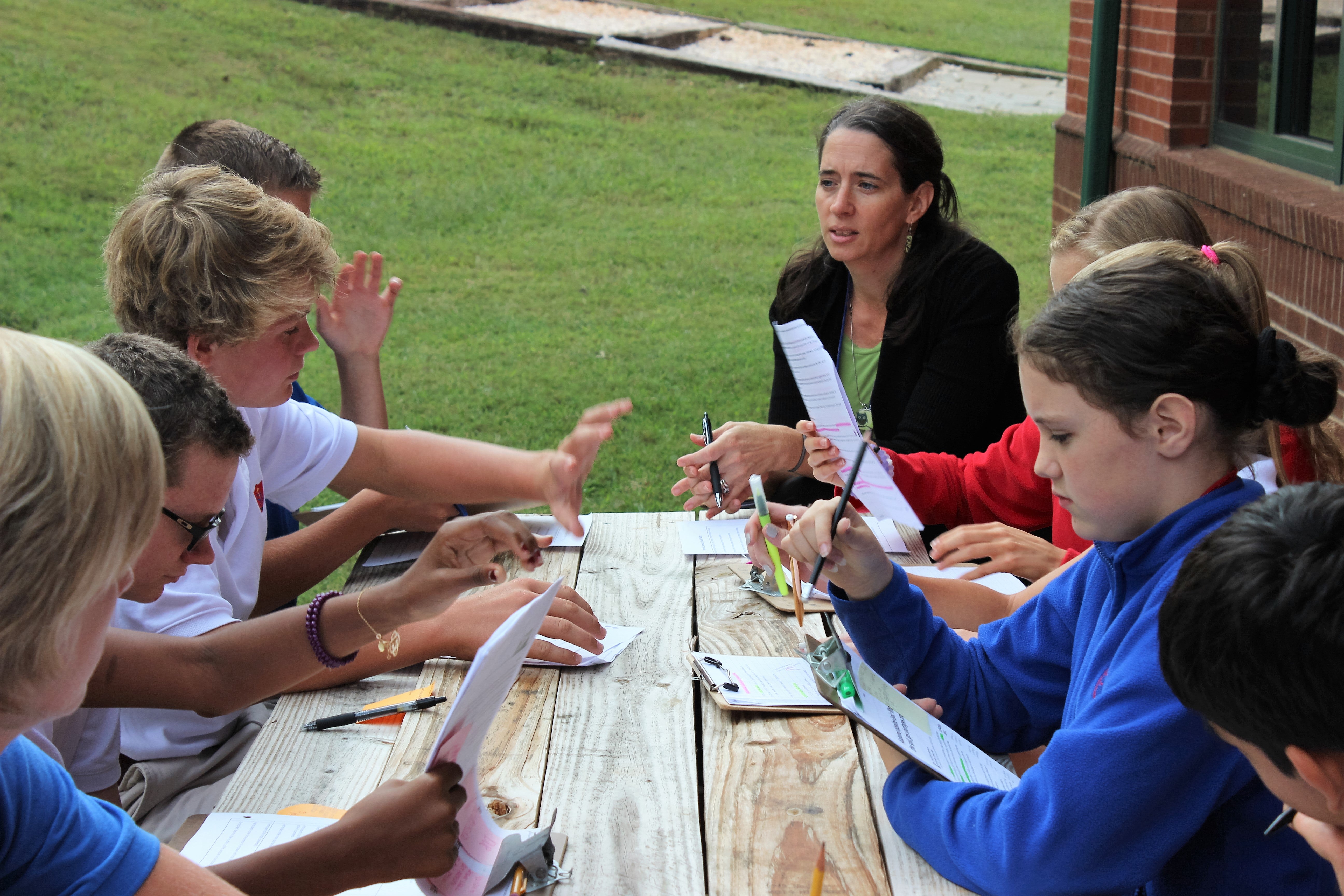Salisbury Academy students discuss environmental disaster: The Alabama pipeline leak
Published 12:00 am Thursday, October 6, 2016

- Salisbury Academy teacher Alexandra Shadroui serves as a facilitator in a student-led Socratic Seminar discussion on the Alabama gasoline pipeline leak. Submitted photo
SALISBURY — Seated outdoors at a large picnic table in an open forum classroom arrangement, Salisbury Academy eighth-graders shared ideas, facts and interpretations last week on an environmental disaster largely overshadowed by other recent breaking news: the Alabama gasoline pipeline leak.
Having first researched two articles and prepared their thoughts, students were eager to delve into the under-discussed spillage of hundreds of thousands of gallons of gas.
“The impacts on the environment could be very bad,” said Salisbury Academy eighth-grader Phoebe Shields, explaining that the Cahaba River is one mile from the leak site. “Also, just a few miles from the leak location are homes and a middle school.”
In addition to environmental concerns, the logistical aspects of Colonial Pipeline’s Line 1 supplying the East Coast with 1.3 million barrels of gasoline per day were examined in the discussion. Students shared their family stories of scrambling for gas after the leak and paying higher gas prices, while others shared how the disaster hits even closer to home than that.
“Right now at our house we can’t drink the water because of coal ash,” said student and Salisbury resident Emma Shelby. “In Alabama, generations who build there going forward may not be able to drink the water.”
For Jude Lockhart, the events surrounding the spill led to a conclusion about fossil fuel use on the whole.
“I think we depend on gas too much. This one thing happened and it affected our entire economy,” said Lockhart. “It’s pretty ridiculous that one pipeline spills and so many people are hurt by it.”
The style of teaching in which the discussion took place is one used regularly at Salisbury Academy to encourage and grow critical thinking: the Socratic seminar format. In this dynamic setting, students explore concepts, ideas and problems through direct communication with one another. The teacher’s role is to sit outside the circle and to ask essential questions to spark conversation, redirecting and encouraging the discussion only when necessary.
“Discussing current environmental issues in the Socratic seminar format provides depth of preparation, critical thinking and purposeful conversation that generates multiple perspectives and real world connections,” said science teacher Alexandra Shadroui.
Shadroui said that the students did an excellent job of supporting ideas with examples from their texts to build meaningful conversation with their peers.
The final question posed by Shadroui was, “What are the most important lessons learned from this?” In answer, students proposed everything from the importance of preparation to the need for infrastructure repairs, to a focus on the positive takeaways from the spill.
“They worked together to get the problem fixed,” said student Will Fowler. “I think that shows what kind of state Alabama really is.”


